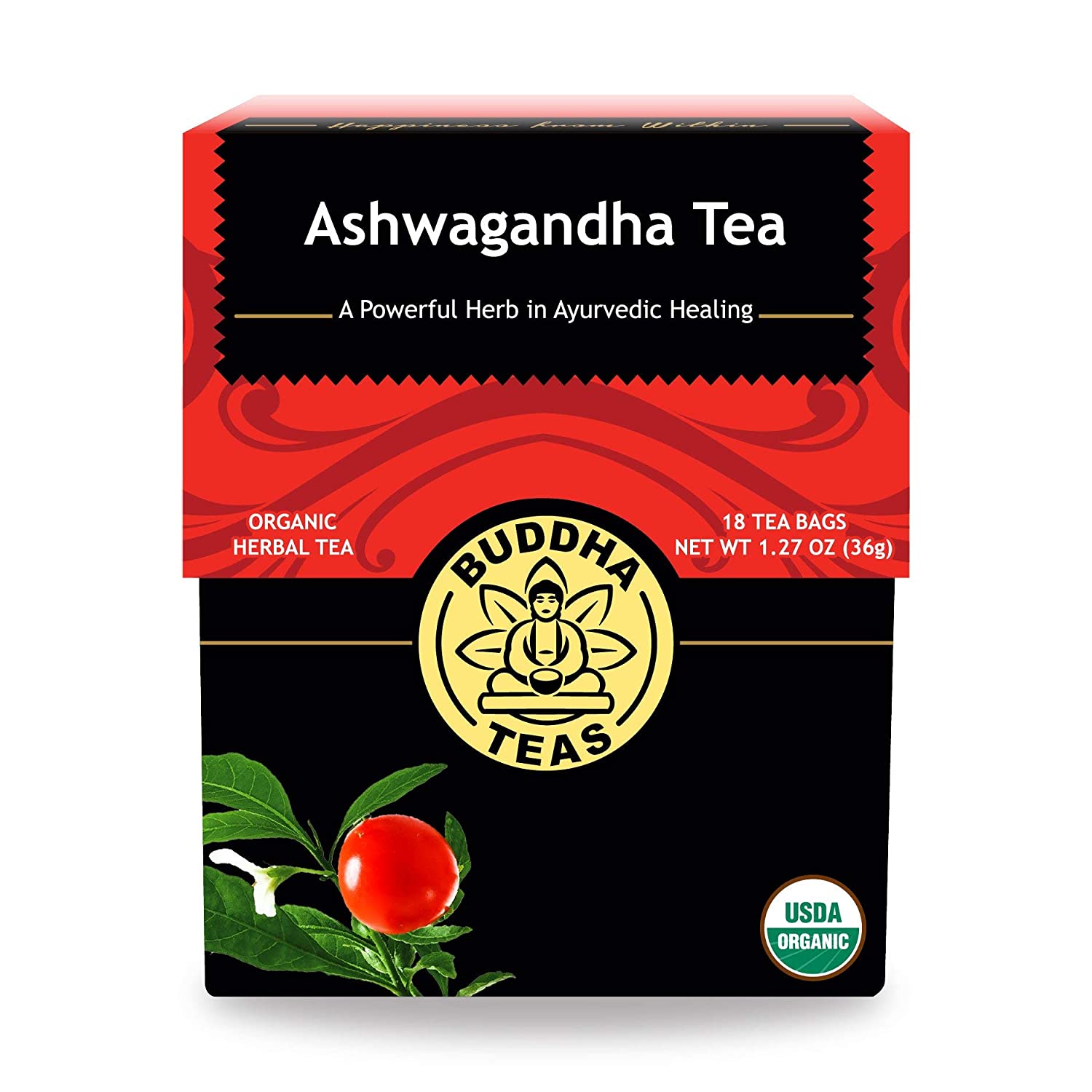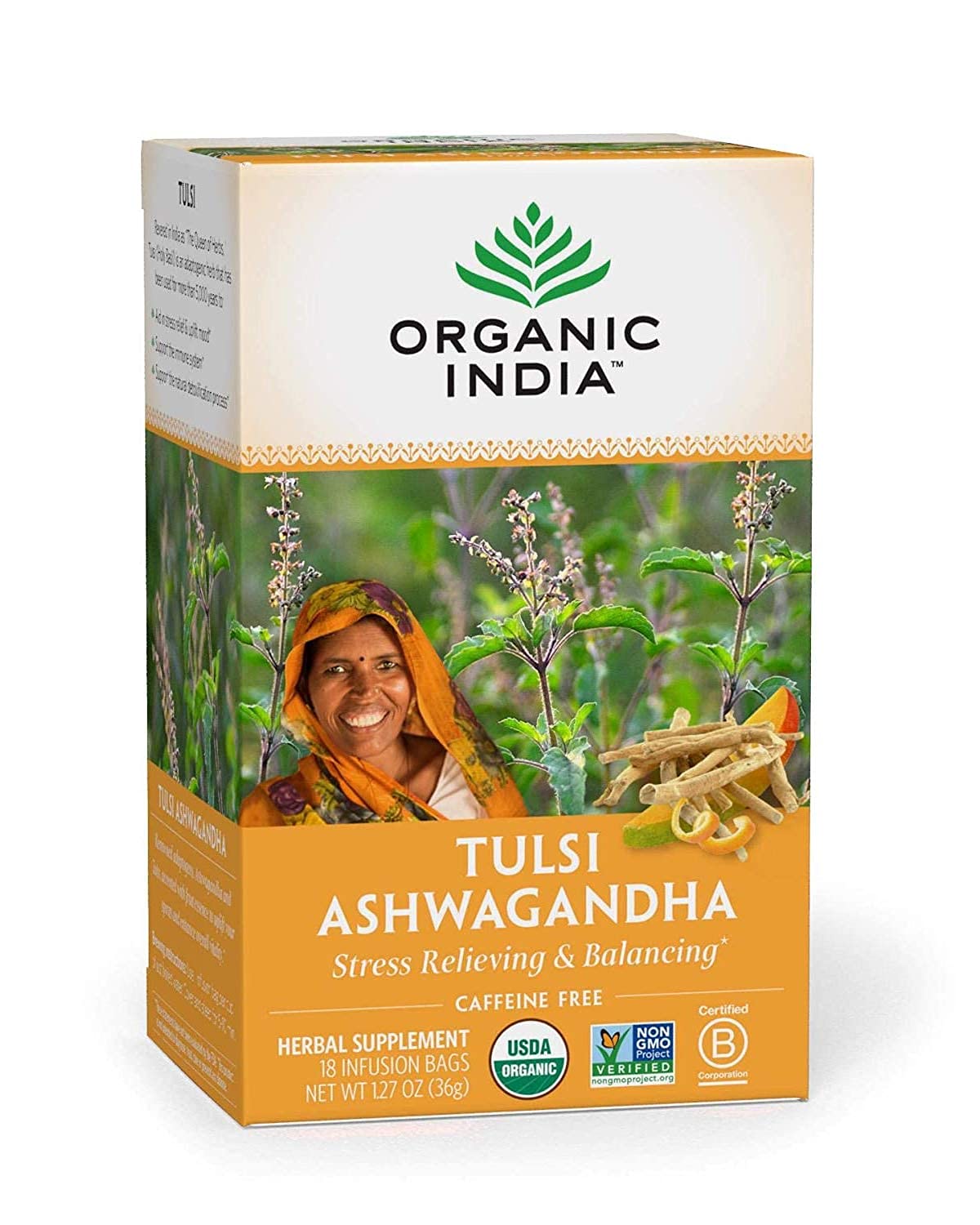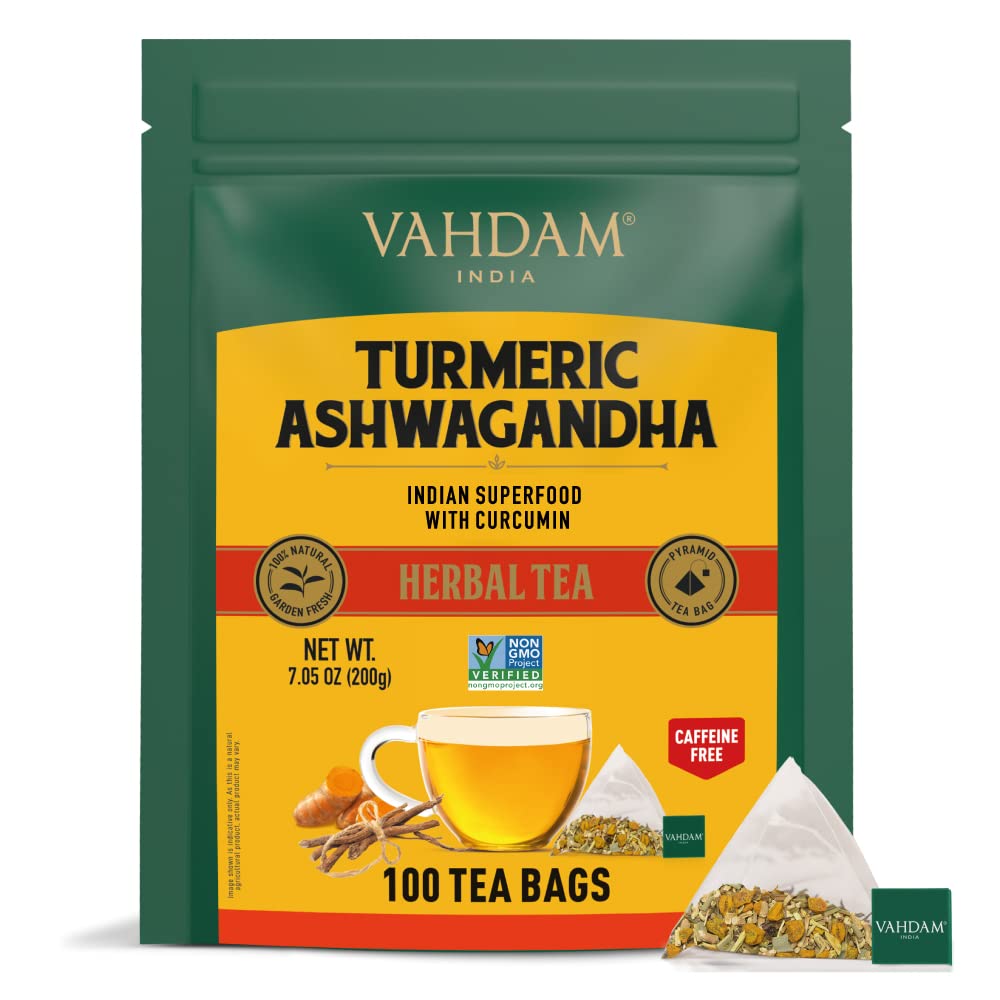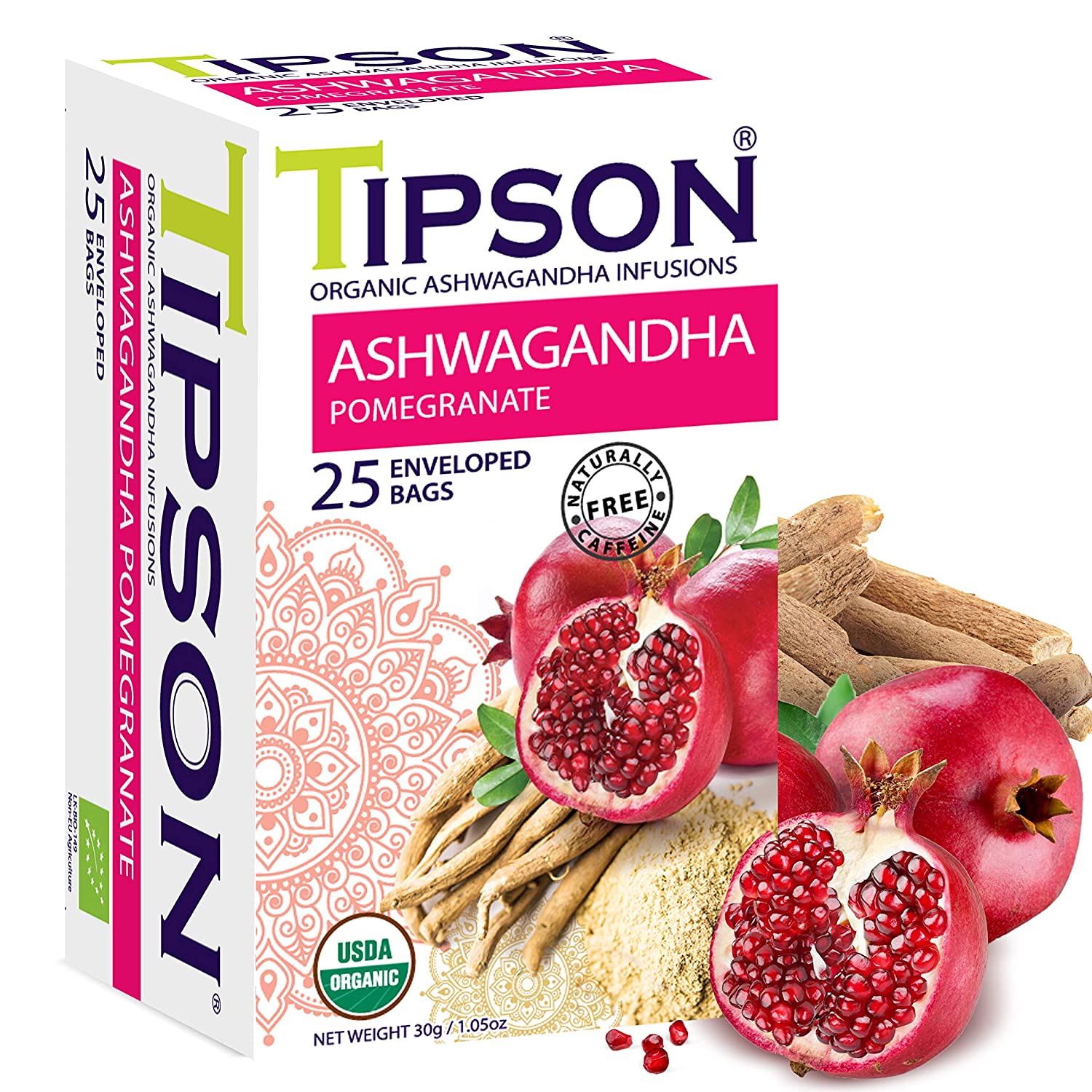There's a reason that Ayurveda—the traditional Indian medicinal system—is one of the world's oldest therapies: It works. And a cornerstone of this holistic approach to health is the herb ashwagandha, which translates to “smell of horse,” and is believed to have aphrodisiac qualities.
Ashwagandha is an adaptogen, meaning it helps your body cope with stress by balancing out your hormones and promoting homeostasis within your body. This can be helpful for those who are experiencing anxiety or insomnia (or both).
The most common way to consume ashwagandha is as a tea made from dried root powder, but you can also find capsules or tinctures available at specialty retailers and online.
How We Choose
Ashwagandha is an herb that has been used in Ayurvedic medicine for thousands of years. It's known as the "strength" herb because it promotes endurance and vitality, while also helping to relieve stress and anxiety.
Ashwagandha tea is a great way to harness the power of this amazing herb without having to take capsules or tinctures every day. Plus, it's easy to make and delicious too!
Buddha Teas Organic Ashwagandha Root Tea

The Buddha Teas Ashwagandha Tea is a supremely well-rounded tea that hits all the right notes. This organic, ashwagandha-based herbal tea is certified USDA organic, which means it's grown without pesticides or artificial fertilizers. It's also kosher certified and contains no artificial sweeteners or flavors, so you can rest assured knowing your body will get the full benefits of this herb without any unwanted additives.
The Buddha Teas Ashwagandha Tea has a lot going for it in terms of flavor too. The green tea base is earthy with hints of woodiness and a touch of sweetness from the organic stevia leaf extract. The real star here though is the ashwagandha herb itself, which adds a hearty note to this drink that makes it feel like more than just an average cup of tea. While some teas have milder flavors when compared to others, this one stands out as one of strongest and most flavorful on offer from our list. A solid choice if you're looking for an herbal alternative to coffee that'll help you kickstart your day and give you steady energy throughout the day too.
Organic India Calming Tulsi Herbal Tea

Organic India is an American company, but it's based in California to make sure its products can reach the US market. Its Tulsi tea is made from the Holy Basil plant and contains three different types of basil – which explains why this tea has a range of health benefits.
The taste is very subtle, making this an ideal choice for those who prefer herbal teas or are sensitive to strong flavors (or both). The product also comes with a helpful leaflet explaining how Tulsi works and what benefits you can expect from drinking it regularly.
While we didn't find any evidence that this worked as well at calming anxiety as some other herbal teas, it did have a noticeable effect on our stress levels during testing – most notably when we were feeling particularly busy or rushed. Drinking Tulsi often helped us stay more relaxed and less stressed throughout the day.
VAHDAM, Organic Turmeric Ashwagandha Herbal Tea

The Vahdam Teas Turmeric Ashwagandha Herbal Tea is a great cup of tea for those who are looking to get the best flavor and health benefits out of their herbs. These herbal teas can do both, and that's why they're so popular.
The Vahdam Teas Turmeric Ashwagandha Herbal Tea comes in a pyramid shape bag, which is much sturdier than paper bags. The tea also uses 100% real ingredients, all of which have been tested by third-party labs to ensure purity and quality.
This tea has an interesting ingredient profile -- it includes black pepper, licorice root, lemon grass, and ashwagandha root powder. All these different flavors come together to make this one really tasty cup of tea that packs a lot of health benefits into one cup. It might be too strong for some people though if you're not used to stronger teas like that you may want to start with something less intense at first until your body adjusts.
Tipson Organic Ashwagandha Tea Infusions

The Tipson Ashwagandha Tea is our top pick for the best ashwagandha tea, and for good reason. This 25-bag pack of pure organic ashwagandha root (the real stuff) is a great value at $8.99 per bag, especially considering its potency as an adaptogen.
Ashwagandha has been used in Ayurvedic medicine since ancient times to help support healthy adrenal function and overall health balance, making it a popular herb among yogis and athletes alike. It's also been shown to be effective against stress by improving the body's ability to cope with physical and mental demands throughout the day. The Tipson Ashwagandha Tea isn't messing around when it comes to its claims of being an adaptogen, which means that it can help you deal with stress more effectively over time.
If you're looking for a simple way to take advantage of ashwaghanda's many benefits without having to brew up cups of herbal tea every day -- or if you simply want some new things in your cupboard -- look no further than this excellent selection from Tipson.
Ashwagandha Tea FAQs
People have been using ashwagandha in their tea for thousands of years.
There are many different types of ashwagandha tea, each with its own unique set of benefits. It can be hard to figure out what the difference is between all the different varieties.
Not only that, but there are also questions about how to brew the perfect cup of ashwagandha tea! We've created a list of Frequently Asked Questions about ashwagandha tea so you can make an informed decision when purchasing your next batch.
What Does Ashwagandha Tea Do?
As with any supplement, it's important to understand how the ingredient works within the body before diving into benefits. Ashwagandha is an adaptogen that can help reduce stress and anxiety while also supporting sleep. It may also provide long-term joint care by promoting healthy muscle regeneration; however, there is no evidence that specifically supports this claim.
Most importantly, ashwagandha tea may provide anti-inflammatory support for those suffering from autoimmune diseases like rheumatoid arthritis or lupus. While more research is needed to confirm this benefit, many studies have shown promise in reducing symptoms of inflammation and pain among those living with these conditions.
Can You Drink Ashwagandha Tea Everyday?
As an adaptogen, ashwagandha tea can be taken on a daily basis to help keep your energy levels consistent. Drinking this tea is not recommended in place of seeking professional medical attention for a health condition, such as anxiety or PTSD. Consult with your doctor before beginning treatment using any herbal supplement, including ashwagandha tea.
For general stress relief, it's best to drink about 50 milligrams of the herb daily — about ½ to 1 teaspoon of dried root powder — usually mixed with water or other liquid. For specific conditions like insomnia, depression and anxiety disorders, 100 milligrams twice per day may be more appropriate. Be sure to talk with your healthcare provider first so you know how much ashwagandha tea you should be drinking each day.
Who Should Not Drink Ashwagandha Tea?
While there haven't been any studies done specifically on how ashwagandha tea affects pregnancy, the herb does cross the placenta in animals and has shown some anti-inflammatory properties. However, we do not know if this translates to humans. For that reason, it is recommended to steer clear of ashwagandha tea if you are pregnant unless your healthcare practitioner says it's OK.
In addition to pregnant women, doctors advise against drinking ashwagandha tea if you have a compromised immune system or low blood pressure. They also recommend avoiding large doses of the herb without proper guidance from your doctor as it can be toxic in high amounts.
What Are The Side Effects Of Ashwagandha Tea?
The side effects of ashwagandha tea are minimal and almost always include mild stomach upset, headaches, or dizziness. These side effects are not common though and tend to only occur if you have a sensitivity to the herbs in the tea blend. It is also important to note that people with high blood pressure should avoid drinking large amounts of ashwagandha tea since it can lead to slight increases in blood pressure. Talk with your doctor about how much ashwagandha tea is appropriate for you if you have high blood pressure concerns.
What Does Ashwagandha Do For Females?
Ashwagandha has a wide range of benefits for women, including both physical and mental health. It can help with anxiety as well as PMS symptoms and other menopause-related problems. It can also reduce the severity of other conditions that are most common in women, such as osteoporosis.
Ashwagandha is traditionally used in Ayurvedic medicine to promote fertility because it's believed to increase sperm count and boost libido in both men and women. However, there is little clinical evidence to support these claims at this time.
What Are The 12 Benefits Of Ashwagandha?
Ashwagandha has been used for centuries in traditional medicine, and it's proven to have some impressive benefits. According to the University of Maryland Medical Center, ashwagandha can help treat a variety of conditions and health problems. They include: 1. Stress relief The main claim to fame is that ashwagandha is an adaptogen, which essentially means it helps your body deal with stress by balancing out fluctuations in hormones like cortisol. In one study published in the journal Phytomedicine, people who took 300 mg of extract daily saw a reduction in stress compared to those taking a placebo. 2. Anxiety Another benefit of ashwagandha is that it can help reduce feelings of anxiety without causing drowsiness or reduced mental sharpness like benzodiazepines do. In fact, a review published in Phytotherapy Research looked at five studies involving 736 people and found significant reductions in anxiety symptoms when taking the herb compared to placebos or other treatments (such as antidepressants). 3. Memory improvement Animal studies show that ashwagandha may be helpful for memory loss due to Alzheimer's disease or lack of sleep (or both), but research on humans is limited here. Still, we do know that this herb has many similar effects on brain function as well-studied nootropic Bacopa monnieri does; so combining them makes sense if you're interested in improving your memory and protecting against cognitive decline over time. 4. Blood pressure management Several small studies have shown that Ashwagandhea can lower systolic blood pressure by about 10 points over 12 weeks compared to placebos or other treatments such as medications or diet changes alone; however, there are conflicting results here so more research is needed before any conclusions can be drawn about long-term effects on high blood pressure specifically versus low blood pressure overall
Should I Take Ashwagandha Tea In The Morning Or Night?
It doesn't matter which time of day you take ashwagandha tea, as long as it fits your schedule and you're consistent about taking it. However, studies have shown that the benefits of ashwagandha happen when it is taken on an empty stomach (i.e., without food or drink other than water). If that's possible for you, then morning might be a better choice. Otherwise, evening might work best if your schedule changes throughout the week and you can plan accordingly. Regardless of the time you choose to take this herbal tea, it's important to stay consistent in order to get optimal results from using this supplement.
What Is The Dark Side Of Ashwagandha?
While the vast majority of research and user experiences we found online were overwhelmingly positive, there are still some side effects to look out for. Make sure you talk to your doctor before taking any new supplements and check out our article on the best health insurance providers while you're at it.
Some users have reported an increase in feelings of anxiety while taking ashwagandha, though this is usually temporary as long as they stick with recommended dosages. Others have said that their sleep was worsened by the supplement, leading to restless nights and sometimes even insomnia. However, many people have also had success with ashwagandha when dealing with insomnia – so if you've tried other natural sleep aids without luck, give it a shot! Just be sure not to overdo it or you could end up having the opposite effect from what you intended.
It's important to keep in mind that ashwagandha can have a drying effect on your body; specifically, its cooling properties may leave your skin feeling dryer than usual (almost chapped). This might make sense once we learn about how this adaptogen works; after all, it certainly makes us sweat more during exercise! If you notice your skin starting to feel particularly parched or irritated while using ashwagandha regularly (especially if alongside another drying herb like peppermint), consider mixing up your routine with a moisturizing face mask or switching out one of your regular shampoos for something gentler like baby shampoo or aloe vera gel.
Does Ashwagandha Work Immediately?
Because of the way that ashwagandha works, it may take some time before you begin to see any benefits. Typically, people begin to feel an effect after taking the supplement for two or three weeks, but everyone is different and it might be longer before you start noticing a difference.
If you're looking for immediate relief from stress and anxiety without having to wait several weeks for results, there are other options available. Some supplements combine ashwagandha with other herbal remedies such as valerian root or passionflower to promote feelings of calmness and relaxation immediately upon taking the pill.
If you're interested in trying an alternative treatment besides ashwagandha that offers relief from stress immediately when you take the pill, talk to your doctor or pharmacist about possible options.
Does Ashwagandha Change Your Mood?
While ashwagandha has shown to reduce stress and anxiety, it's not a prescribed drug for depression. It might help improve your mood by reducing the stress in your life, so you're feeling more hopeful and relaxed. This is because one of the ways it works is to offset extreme cortisol levels in the body.
Some studies have shown that ashwagandha can be effective in reducing symptoms of depression when used along with other medications or therapies. However, it may take longer than other antidepressants and the benefits may not be as strong compared to those medications alone. There haven't been enough studies done on humans yet (only rodents), so we don't know exactly how much benefit you would get from taking this herb for depression over the long term .
While there haven't been many human studies done on ashwagandha for anxiety relief, early research suggests it could offer some relief when taken alongside a medication like benzodiazepine .
Conclusion
The best ashwagandha tea is a hot beverage made from the root of the ashwagandha plant. This herb has been used for centuries in traditional Ayurvedic medicine as a way to boost energy and promote relaxation. Modern research shows that ashwagandhahas many beneficial properties such as anti-inflammatory effects, may help reduce stress and boost immunity, improve athletic performance, support brain health and protect against oxidative damage caused by stress. The best ashwagandha tea is made with high quality ingredients and prepared properly so it doesn't have any harmful effects on your health. Many people enjoy drinking this herbal beverage in place of coffee or other caffeinated beverages because it helps them relax without making them feel groggy. With its many benefits combined with ease of preparation, the best ashwagandha tea makes a great choice if you want to try this Ayurvedic herb for yourself!









